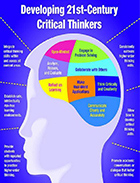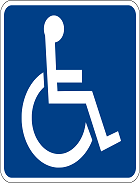Project-based Learning – Learn by doing
Project-based Learning – Learn by doing
While projects are something given to the children on a regular basis, project-based learning is a unique method that helps the
 students learn new concepts by way of doing projects. With the education field bringing in newer developments, project-based learning is aimed at getting all the students to participate in the learning process.
students learn new concepts by way of doing projects. With the education field bringing in newer developments, project-based learning is aimed at getting all the students to participate in the learning process.What is project-based learning (PBL)?
Project-based learning is a methodology where students learn and apply their knowledge and skills, by exploring real-world challenges. In simple terms, it can be as learning by doing. The term originated in the 1960s and has gained more popularity in the recent times.called
Project vs. Project-based Learning
Projects refer to tasks that can be done to enhance the understanding of a topic. Project-based learning is focussed on learning through projects. While projects do not necessarily have a real-life application, project-based learning is all about real world.more
Features of project-based learning:
There are certain characteristics that makes the project-based learning different from other methods of learning that takes place in a classroom.
-
Student-centric
PBL is a student-centric learning methodology where the focus is not only on developing the skills of the students, but also ensuring practical applicability of the skills.
-
Engaged learning
The students and the teachers are continuously engaged in the learning process. They have the opportunity to put their skills and knowledge to actual use within the classroom. PBL ensures that the students are engaged to the learning process.
-
Team work
Project-based learning is more of a team effort than an individual effort. By working together with others, students develop interpersonal skills, communication and also collaborative or team skills.
-
Skill development
Project-based learning focuses on skill development. Students are given the opportunity to work on projects that relate to the real-world. PBL helps to develop skills required for the real world.
-
Wide applicability
PBL has a wide applicability and scope with regard to the topics it can cover. Teachers can make use of PBL to make concepts of science
to the students. Students who find classroom lectures boring, can be engaged with the help of PBL.easier
to the students. Students who find classroom lectures boring, can be engaged with the help of PBL.easier
 Why is it important?
Why is it important?PBL helps to engage the students and provides them with the right exposure to a given topic. Students can not only gain knowledge on a topic, but can also develop 21st century skills like:
-
Responsibility Students will be encouraged to work on projects and come up with their thoughts on the same. PBL helps to develop responsibility in students by establishing the fact that the students are responsible for their respective projects.
-
Planning, thinking and reasoning Students will develop planning skills. They will begin to comprehend information and will begin to think of ideas on their own.
-
Understanding Working in a team will help students to develop interpersonal skills and communication skills. Apart from understanding people, PBL helps students to understand tasks as well.
-
Decision making PBL develops decision making skills in the students and helps them to decide when confronted with two different choices.
-
Grasping concepts PBL is important to help students understand concepts in a better way. Concepts like electricity, chemical reaction, volume, etc. are better understood through project-based learning.
Benefits of PBL
PBL offers numerous benefits to the learners like:
-
Long term retention of information Students get to apply their textbook concepts in real life. This helps in the retention of information.
-
A combination of instruction types PBL is a combination of different instruction types. Students not only get to hear their teacher, but also apply their learning to understand the concepts in a better way.
-
Continuous engagement The teachers and the students are continuously engaged in the learning process. The students can learn about different approaches to given problem.
-
Development of skills PBL helps students to apply skills as they learn new concepts. It also encourages students to apply the same set of skills to different issues.
-
Improved interpersonal skills Project-based Learning involves working as a team. This helps to develop interpersonal skills, communication and teamwork.
 Disadvantages
DisadvantagesDespite being an effective method of learning and offering numerous benefits, PBL has certain disadvantages like:
-
Time consuming Implementing PBL involves a lot of time and effort from both, teachers and the students. Since PBL is all about learning through projects, the time taken to decide, develop and execute the topic will be a little too much.
-
May lead to poor performance in written tests PBL doesn’t really focus on writing or textbook based knowledge. It is more about the application of textbook based information. If the focus is entirely on PBL, it may lead to a poor performance in tests.
-
May require many teachers to be involved Projects involve many students, this also means that PBL will involve the participation of many teachers, to guide the students.
-
Limited to a few subjects Though PBL has a wide applicability, it can’t be used for all the subjects/topics.
-
Many students may not be willing to participate PBL may face initial resistance from many students who may not be willing to participate in projects or may find it difficult to understand how the project works.
By implementing project-based learning, teachers will be able to get the students to start sharing ideas and be engaged in the learning process. A combination of traditional learning and project-based learning can be introduced in the classroom to improve the student participation in the learning process.





















